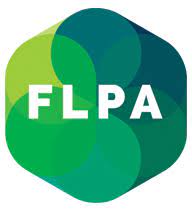All parties involved in a family law dispute are required to provide to each party and the court all information which is relevant to an issue in the case. This information could be in the form of a paper document or stored by some other means such as USB’s, CDs and other computer storage device.
When does the duty start and end?
Duty to disclose starts with pre-action procedure, that is, before the case starts and continues until you settle your matter.
In some cases where circumstances change or where more documents are found, people often assume they are not required to provide such documents. However, this is incorrect, and you must continue to provide updated disclosure to all parties involved in the case.
Full and Frank disclosure (financial cases)
If your case involves financial issues, then in addition to general disclosure requirements you are required to provide full and frank disclosure. This disclosure must include each party’s total direct and indirect financial circumstances such as:
- All sources of earnings (including Centrelink payments, child support, trusts, companies, businesses, partnerships);
- Interest;
- Income;
- Assets (including property, statements, shares, motor vehicles); and
- Liabilities (including mortgages, credit cards, personal loans).
In some cases, parties often dispose of their property such as by sale, transfer, assignment or by way of gift. Under the duty of disclosure, parties are required to disclose all the information relating to such disposal if:
- The disposal was made in the year immediately before the separation of the parties; or
- The disposal was made since the final separation that may affect or defeat a claim.
Parenting Matters
If your case relates to parenting matters, then you are under an obligation to provide each party involved in the case all documents that may be relevant. These include, but not limited to:
- Medical reports of your child/children;
- School reports;
- Letters/drawings made by your child/children; and
- Any photographs, notes, journals
Compliance with your duty of disclosure
Family Law Rules list many ways by which you may be required to comply with your duty of disclosure. These include:
- Production of documents;
- Inspection of documents;
- Copying of documents;
- List of documents; and
- Answer to specific questions.
Please note this is not an exhaustive list and have only listed some examples to provide you with a general overview.
Undertakings
All parties are required to file an undertaking acknowledging your understanding of Family Law Rules relating to the duty of disclosure.
The undertaking also states that you are aware of your duty to the court and each party to provide full and frank disclosure of all information which is relevant to the issue in the case. You must disclose promptly.
Upon signing the undertaking, you also acknowledge that:
- To the best of your knowledge and ability you have complied with the duty of disclosure; and
- any breach of the undertaking may be contempt of Court.
Failure to disclose – Penalties
If you do not comply with your duty to disclose, then the following may occur:
- The court may not permit to use that information or document as evidence in your case;
- It may dismiss all or part of your case;
- The court may order costs against you; and/or
- You may get a fine or face imprisonment if found guilty of contempt of court for failing to fulfil your duty of disclosure or breaching your undertaking.






